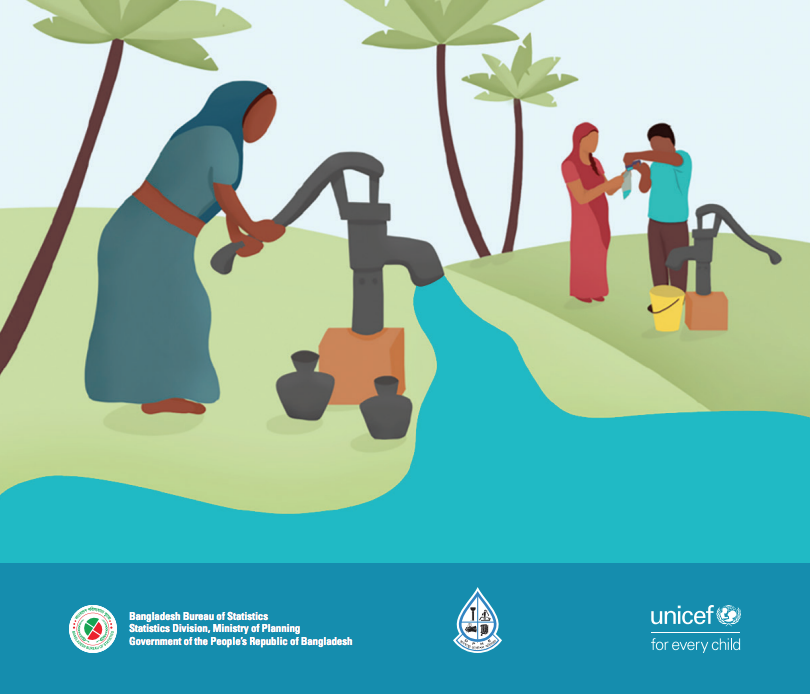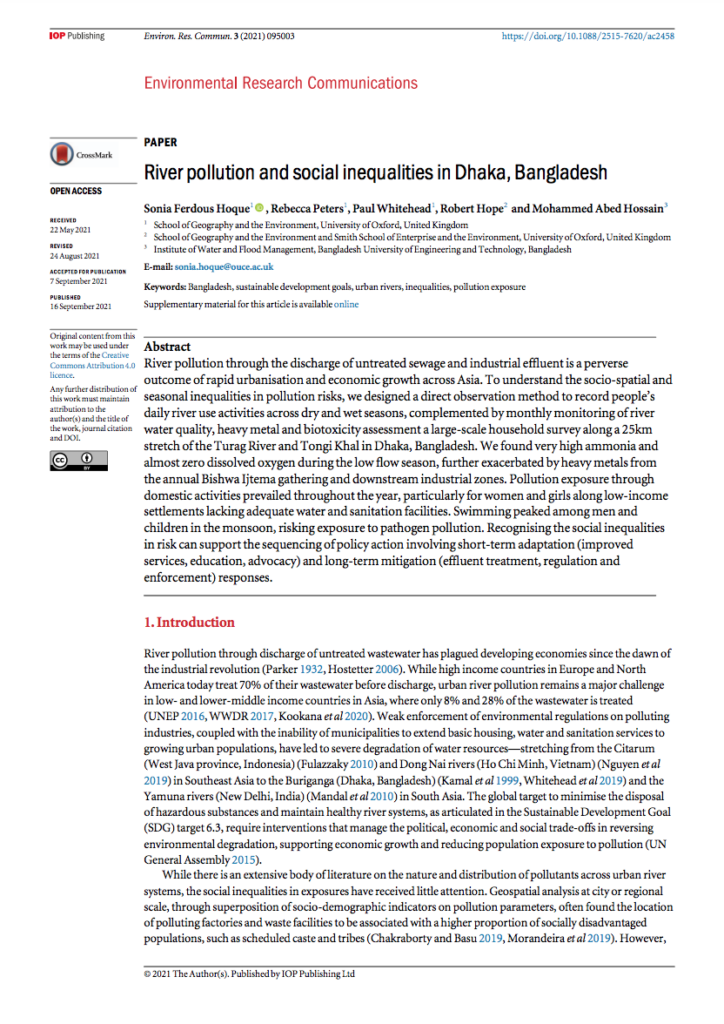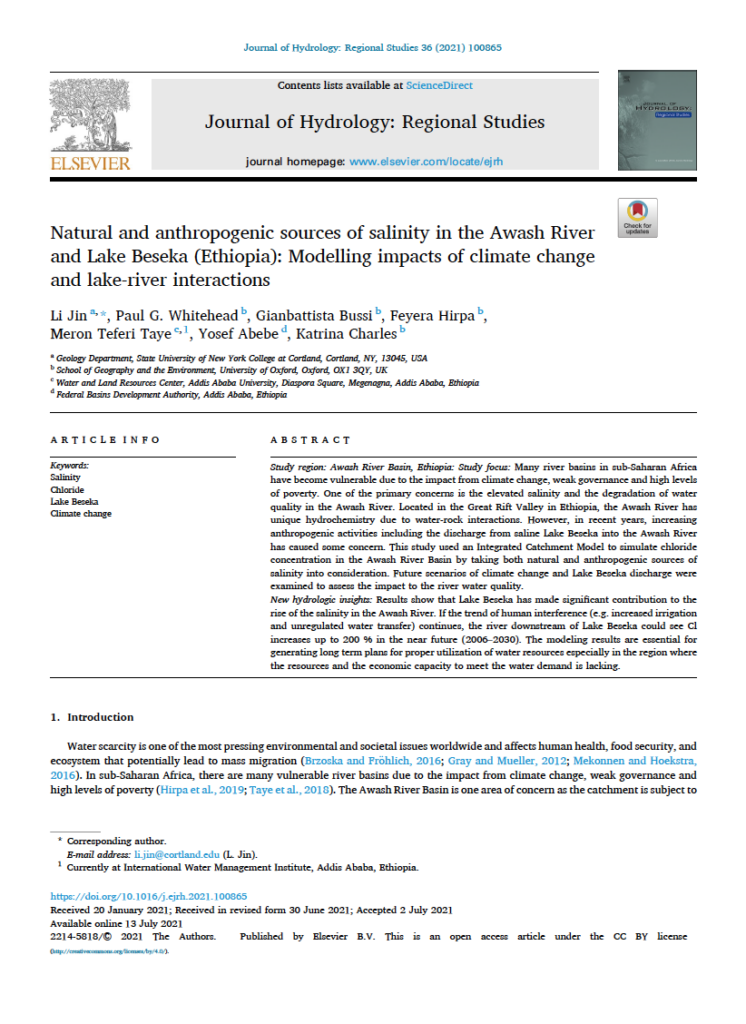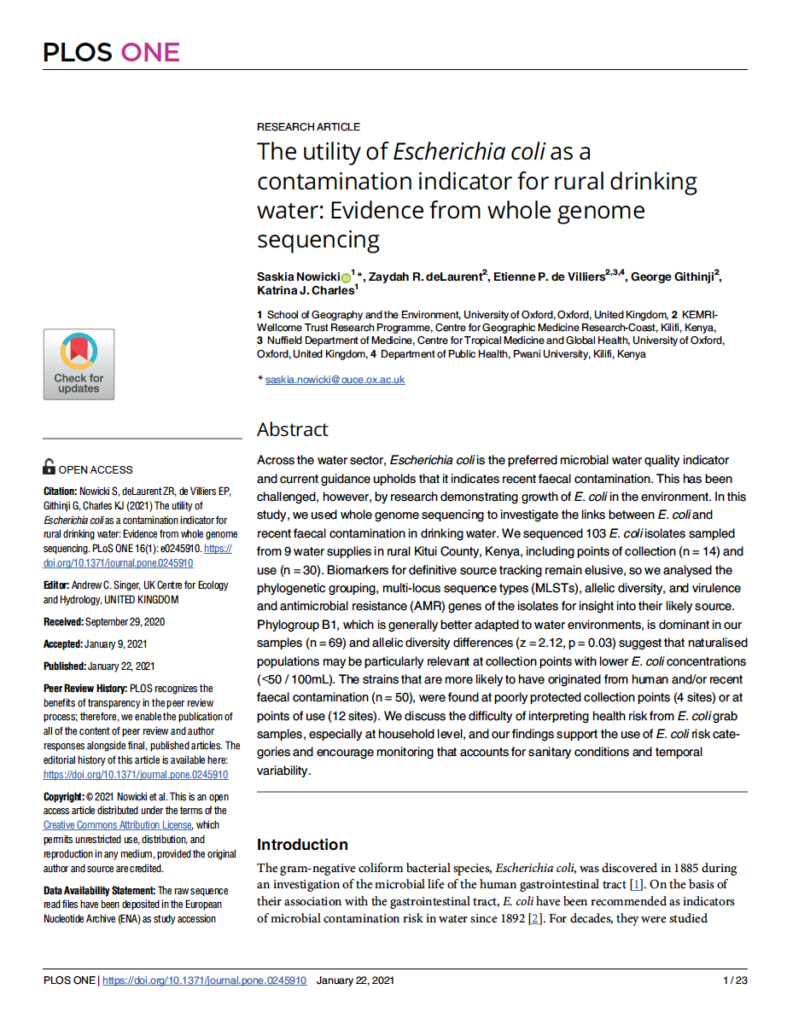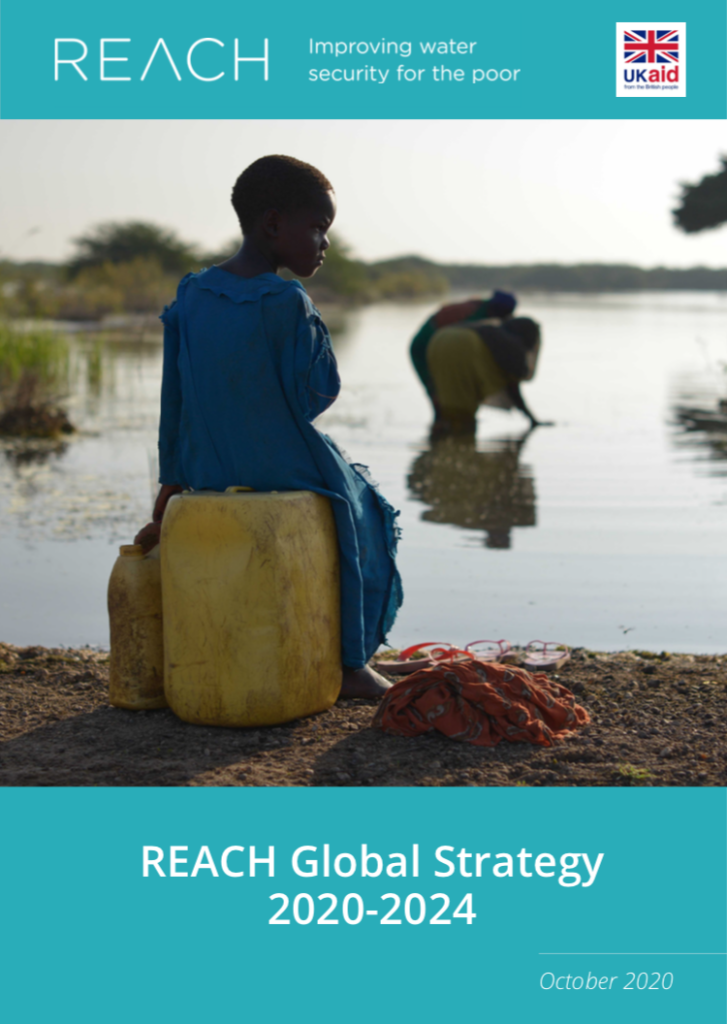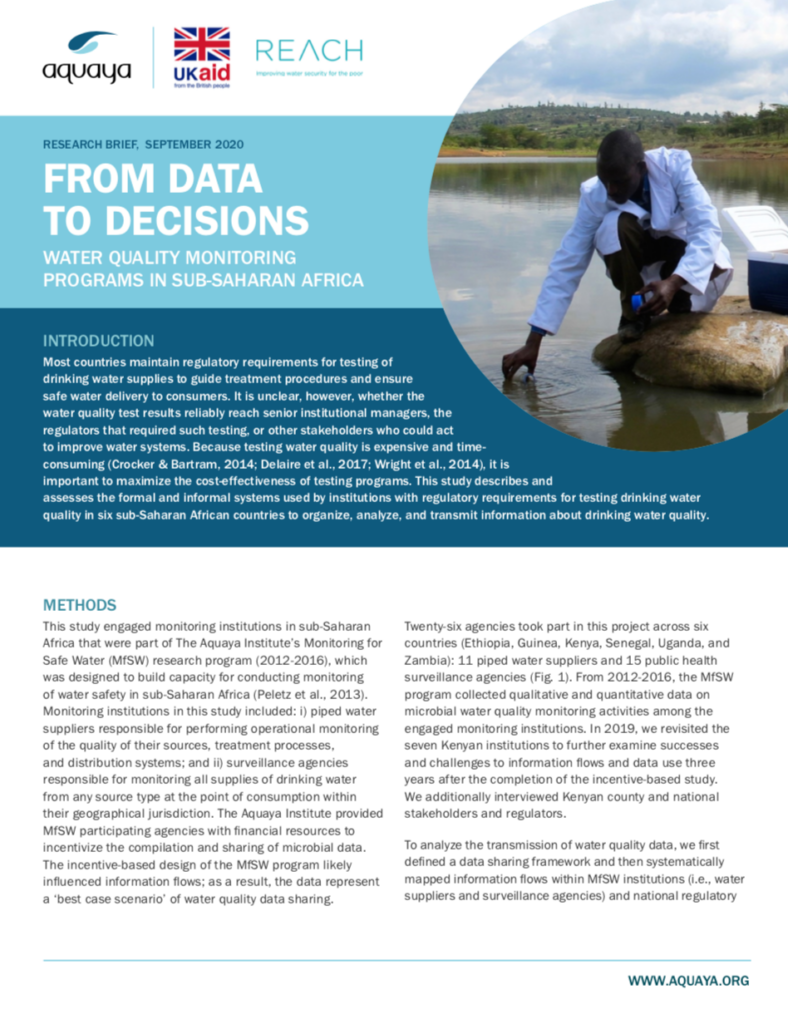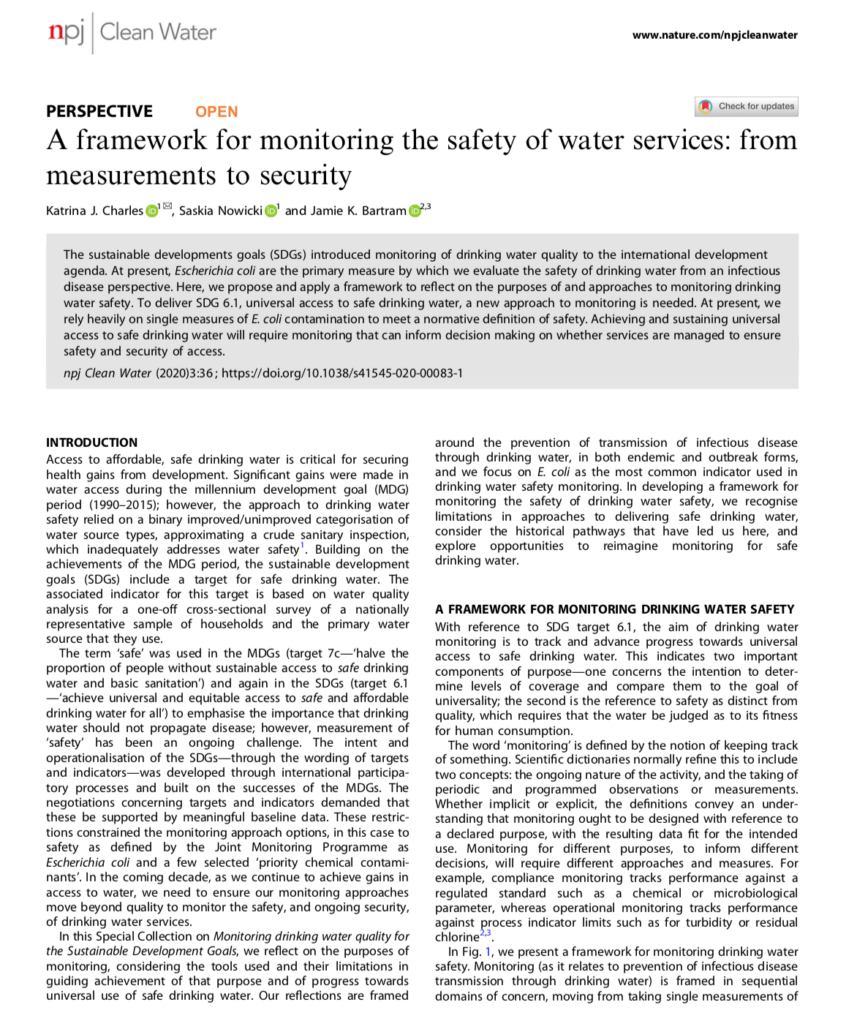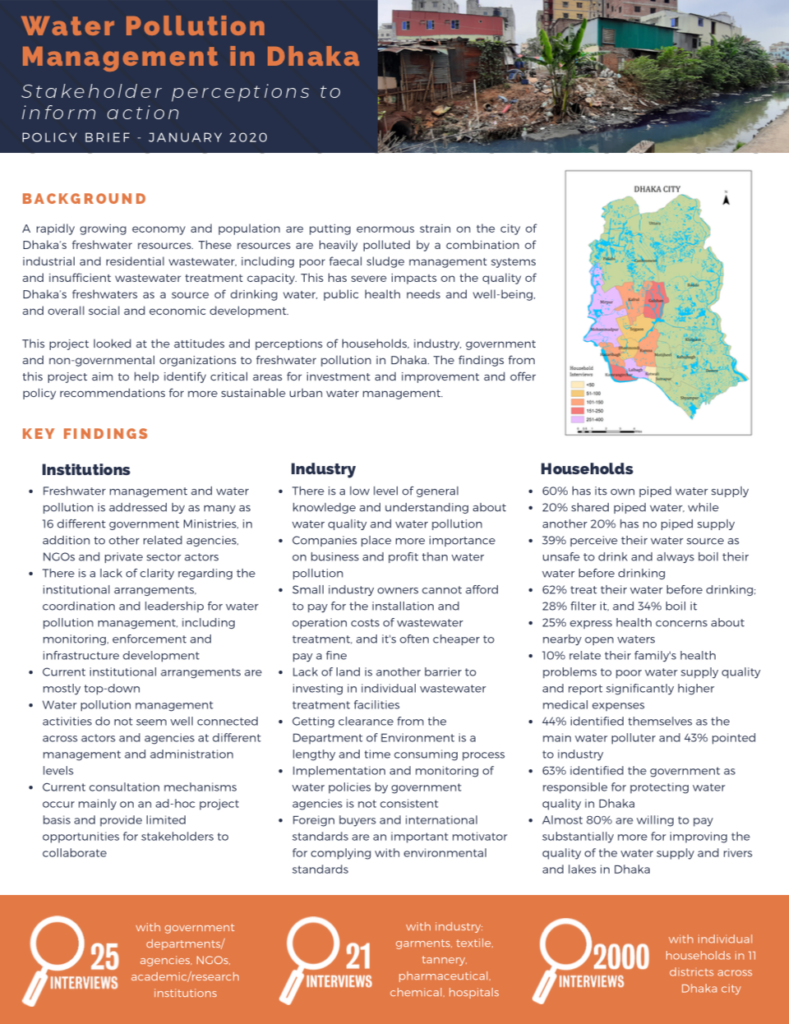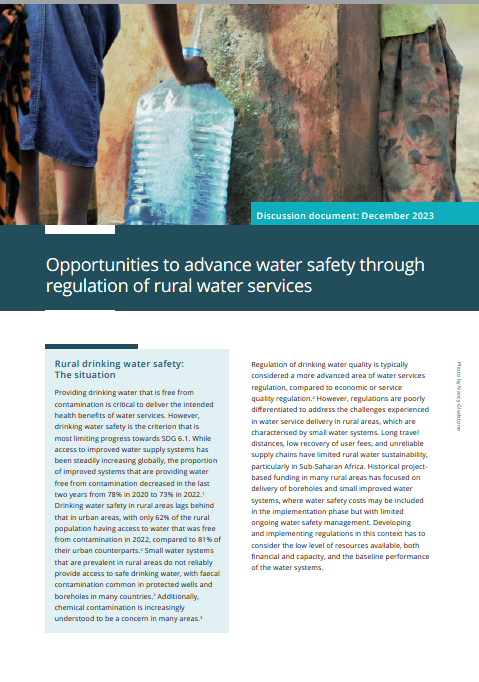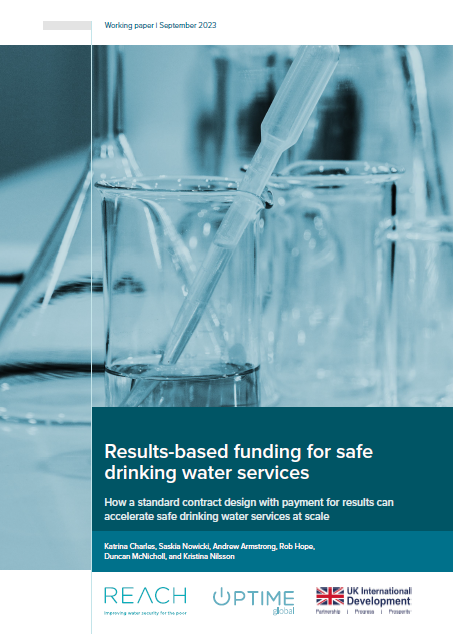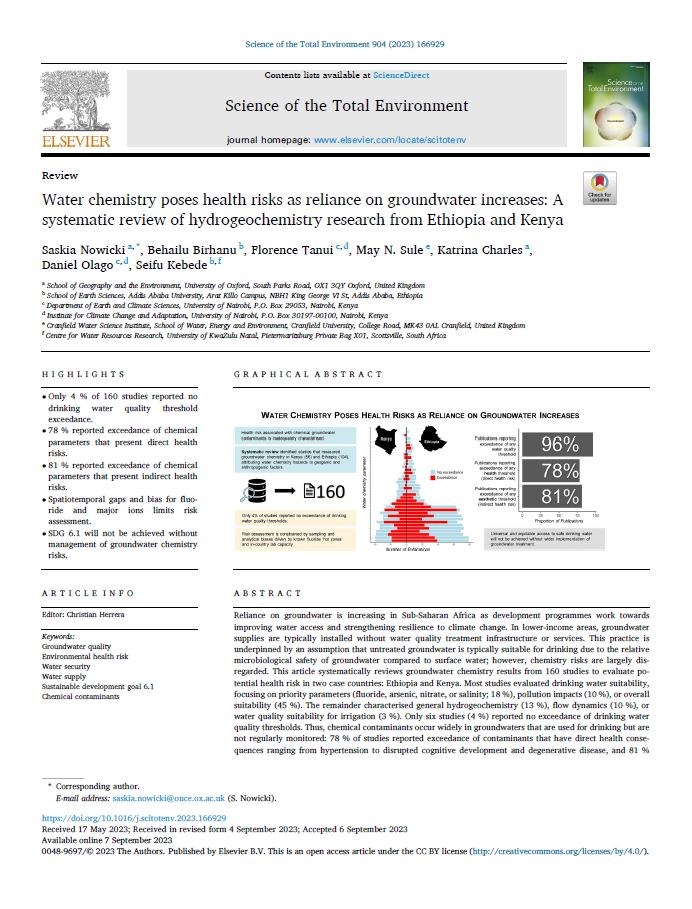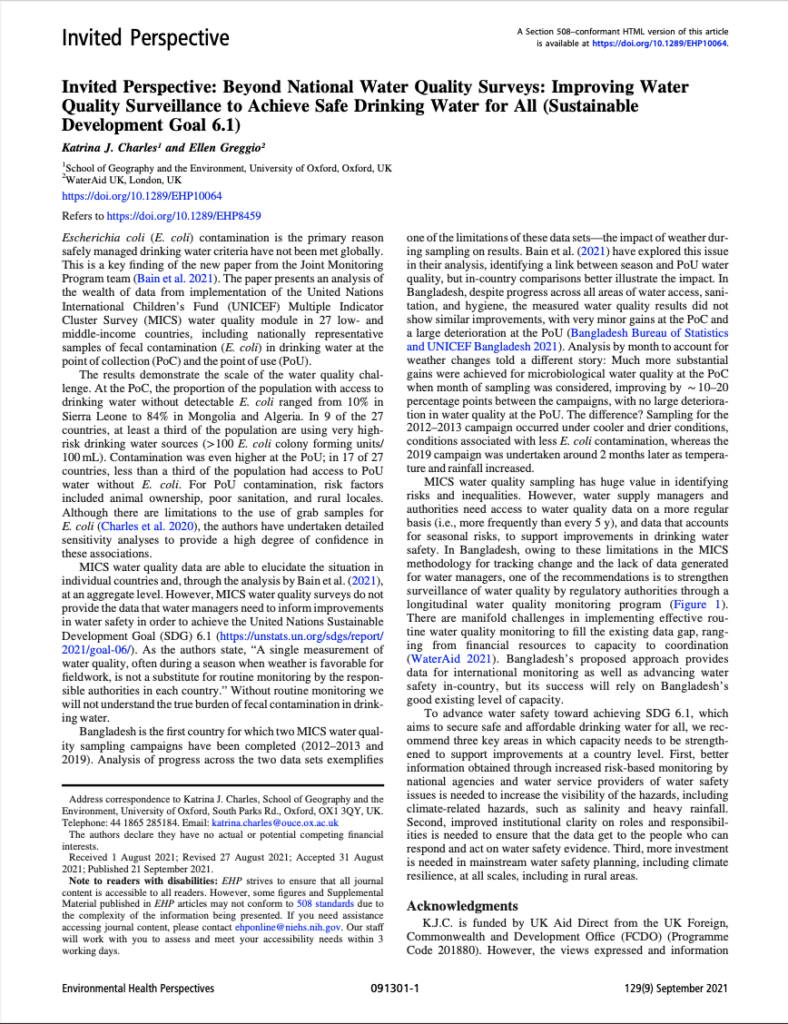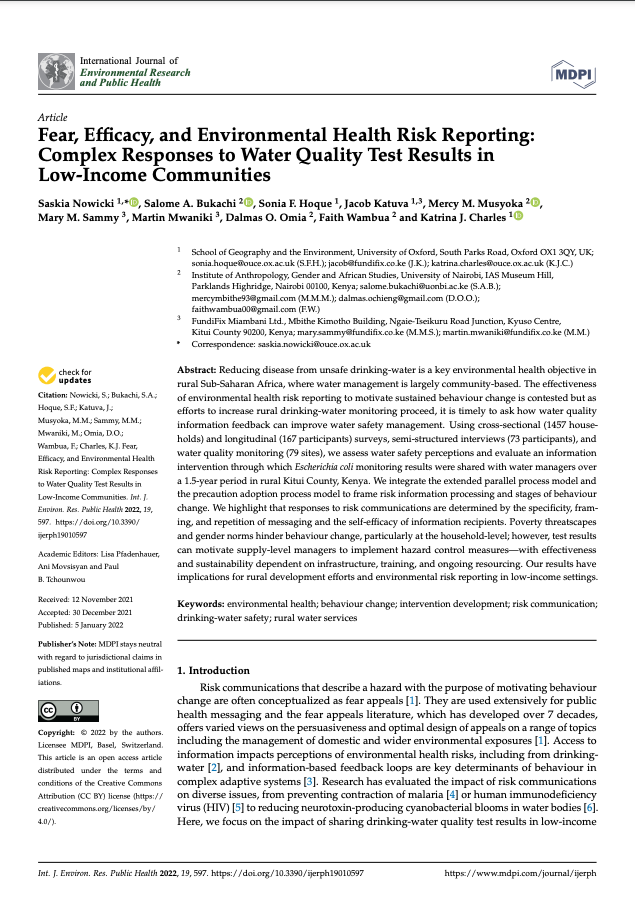
Improving water security for the poor
Improving water quality management
Progress towards the SDG target for safe drinking water is slow, and many countries remain off-target. In 2015, the WHO-UNICEF Joint Monitoring Programme estimated that 44% of the global population lacked access to safely managed drinking water.
REACH’s work has identified a number of challenges to improving water quality:
- Water quality research and management often focus on a single contaminant;
- Appropriate and reliable water quality data are not readily available to decision makers in a timely manner;
- Poor understanding of when and where changes are needed and how to implement them limits action;
- Roles and responsibilities affect how water quality hazards are assessed and managed.
Our work has sought to accelerate action to improve water quality through innovations in measurement, monitoring and management. Working together with stakeholders, from the community to the national and global levels, we have developed and refined risk-based methods for managing water quality risks from industry and other sources.

